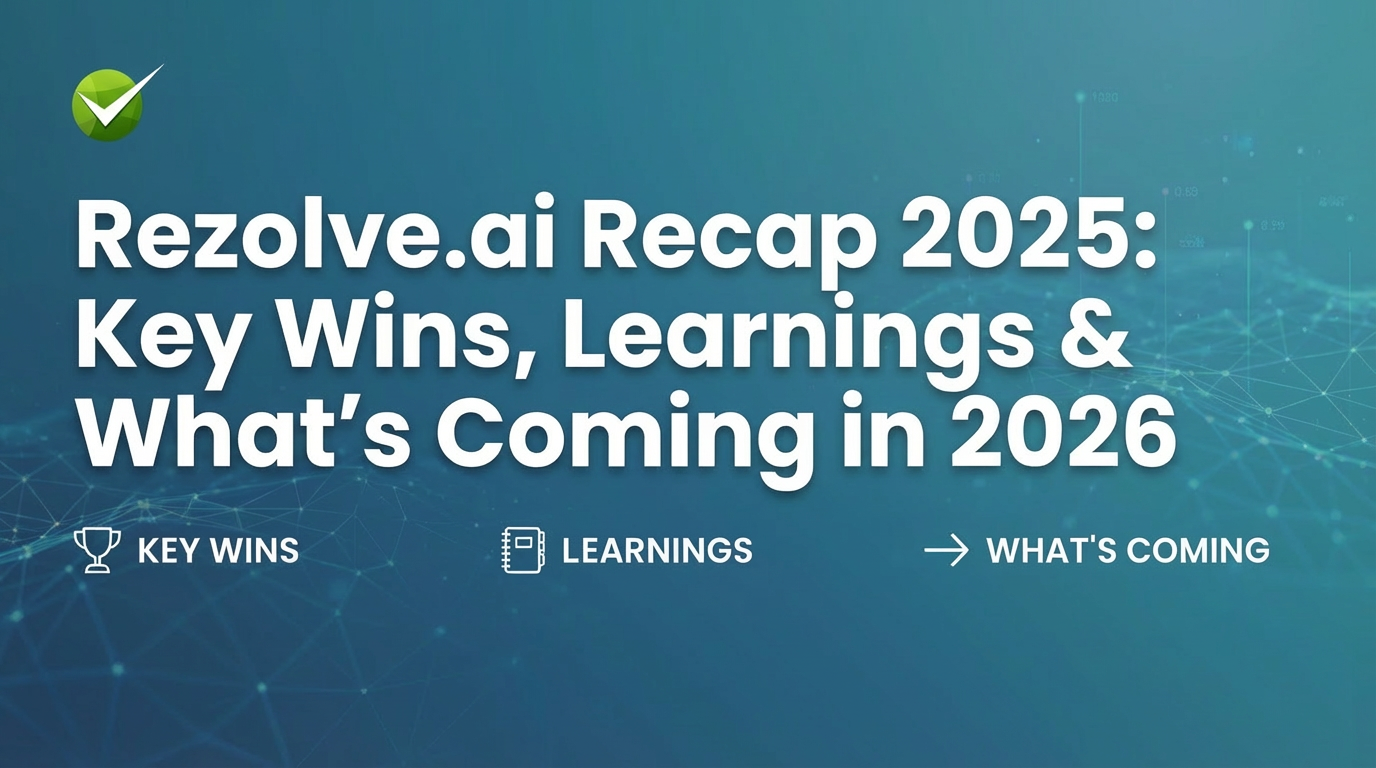In the dynamic IT Service Desk landscape, key performance indicators (KPIs) are vital metrics that gauge an organization's ability to meet user expectations and deliver high-quality service. Among these KPIs, First Call Resolution (FCR) and Time to Resolve (TTR) are pivotal factors influencing customer satisfaction and operational efficiency. Moreover, these two critical metrics measure the efficacy of L1 support tasks.
The Significance of FCR and TTR
A high FCR rate indicates that customer queries or complaints are resolved during the initial interaction without necessitating further follow-ups. It reflects the service desk's proficiency in promptly addressing and rectifying issues. Not only does this save significant resources for the organization, but it also fosters trust among customers, as their concerns are rapidly addressed.
TTR, on the other hand, measures the duration between when a request is logged and when it's ultimately resolved. A short TTR suggests efficient processes and effective problem-solving. This enhances the user experience and ensures that issues don't escalate, preventing potential disruptions.
A high FCR and a low TTR collectively serve as solid customer satisfaction indicators. They exemplify an organization's commitment to swift and effective resolution, which, in turn, solidifies the organization's reputation for excellence.
But where do legacy service desk systems fail to optimize FCR and TTR?
Lack of Quick and Personalized Support
The conventional ticketing system directed all cases to support agents, frequently overwhelming them with an excessive workload. This hindered their ability to thoroughly examine each case, resulting in delayed and impersonalized employee support.
Complicated Functionality
A seamless ticketing solution streamlines your staff's entire support ticket resolution process by remaining invisible. The core of this innovative system is that it eliminates the need for your employees to be familiar with the traditional ticketing procedures. This empowers them to access prompt solutions for their concerns without the hassle of searching for specific channels or manually creating support tickets on different platforms.
Agent-friendly Approach
The conventional ticket resolution software systems typically leaned towards serving the support agents rather than the employees, as they were crafted to receive and manage employee cases, which could often be convoluted and monotonous. Consequently, the traditional ticketing process prioritized the support agents over the employees who sought to resolve their concerns.
Lack of Knowledge Base Optimization
Under the traditional ticketing system, employees needed help leveraging the enterprise knowledge base to address their problems. Knowledge management was confined to support agents responsible for examining cases directed at them. As a result, employees could not benefit from the wealth of knowledge and resources available within the organization.
GenAI as First Line of Defense for L1 Requests: Optimizing FCR and TTR
In a world of evolving technology, clinging to legacy service desk systems can hold your ITSM back. Though once revolutionary, these older systems must be equipped to handle the breadth and complexity of modern requests.
Enter GenAI-powered service desks, a genius of modern AITSM. General Artificial Intelligence (GenAI) leverages advanced algorithms and machine learning techniques to understand, learn, and evolve with each interaction. This continuous learning capability means that GenAI systems become increasingly adept at swiftly pinpointing and addressing issues over time.
These service desks offer round-the-clock support, erasing the limitations of time zones and work schedules. The result is instant support and solutions at users' fingertips, improving overall satisfaction and boosting productivity.
Intelligent automation is another significant feature of AI-powered IT service desks. By automating routine tasks such as ticket resolution, ticket creation and assignment, support agents are freed from tedious workloads, allowing them to focus on more complex issues and ultimately improving the quality of support they can provide.
But the benefits continue beyond there. AI-powered IT service desks use natural language processing (NLP) to understand and respond to requests in everyday language, eliminating the need for technical jargon and providing a more effortless, more comfortable experience for users.
Here's why GenAI trumps legacy systems for L1 requests:
- Predictive Analysis: GenAI can anticipate problems even before they arise based on patterns and trends. This proactive approach can drastically reduce the number of incoming requests, ensuring potential issues are addressed beforehand.
- Adaptive Learning: Unlike static legacy systems, genAI-powered desks learn from every interaction. This ensures they're constantly improving, always evolving, and always ready to handle new challenges.
- Scalability: GenAI solutions can effortlessly scale to accommodate growing numbers of requests. This adaptability ensures that service quality remains consistent regardless of volume.
The Age of AITSM Solutions
Beyond GenAI-powered desks, the next frontier in service management is AITSM (Artificial Intelligence for IT Service Management).
Comprehensive AITSM solutions integrate AI into every facet of service management. From predictive maintenance to automated workflows, AITSM optimizes every aspect of the service chain.
Such integration ensures that organizations aren't just responding to issues but are proactively staying ahead of them. The result? A transformative boost in FCR rates, a notable reduction in TTR, and an unprecedented elevation in customer satisfaction.
Here are other benefits of a modern AITSM solution for service desk KPIs
Simplified Resolution of Issues
By integrating AI-powered ticket resolution, organizations can simplify and streamline the process of resolving issues. According to a survey by Helpshift, companies that use AI-powered chatbots have a 66% increase in customer satisfaction, showing the positive impact of AI in issue resolution. Additionally, AI-powered chatbots can resolve up to 80% of routine customer inquiries, allowing support agents to focus on more complex issues.
Agile Knowledge Management
Generative AI interfaces can provide seamless knowledge management for customers and employees alike. For example, using natural language processing (NLP), conversational AI can understand and interpret user inquiries, providing accurate and relevant information in real time. This leads to more efficient resolution of issues and better overall support experience. According to a survey by Oracle, 80% of businesses plan to use chatbots or other AI-powered support systems by 2020.
Improved Accuracy and Consistency in Ticket Resolution
AI-powered ticket resolution can improve the accuracy and consistency of issue resolution by eliminating the risk of human error. For example, AI-powered algorithms can automatically identify common issues and provide accurate solutions, reducing the need for manual intervention. This leads to faster and more reliable ticket resolution and a better customer experience. According to a ServiceNow study, using AI-powered chatbots can result in an 85% reduction in errors in ticket routing.
Employee-friendly Support
AI-powered ticket resolution can provide employee-friendly support by eliminating the need for employees to navigate complex support processes. With conversational AI, employees can ask questions in everyday language and receive personalized support in real time. This leads to a more efficient support experience, with employees receiving the help they need faster and more efficiently. According to a report by Gartner, by 2021, more than 50% of enterprises will spend more per annum on bots and chatbot creation than traditional mobile app development, showing the growing trend towards conversational AI.
How GenAI Cuts Mean Time-to-Resolution (MTTR) by 50%?
Round-the-clock Availability
ChatGPT-like AI chatbot can help/support around the clock, increasing employee satisfaction and alleviating the burden on support agents. Aspect Software found that 76% of users prefer to use chatbots for quick and straightforward answers. Businesses can increase customer or employee satisfaction and lower support expenses by offering real-time support.
Automating Ticket Routing and Categorization
Organizations can automate the process of routing and categorizing issues by employing AI-powered technologies, which can increase ticket routing accuracy and reduce the effort of support agents. Natural language processing (NLP), for instance, can automatically determine the type and priority of a ticket based on the description submitted by the employee/customer. A report by Accenture found that automation of ticket routing and categorization can improve first-call resolution rates by up to 30%.
Providing Self-Service Options for Users
Organizations can empower users to address difficulties by providing self-service options like FAQ pages or chatbots, which reduces the need for support agents and boosts customer/ employee satisfaction. According to a survey by Zendesk, 67% of employees/ customers prefer self-service over speaking to a support agent. Offering self-service options can reduce the number of tickets raised, leading to cost savings and improved efficiency.
Using Chatbots for Quick and Efficient Ticket Resolution
Chatbots can quickly and efficiently resolve tickets by employing natural language processing to interpret employee inquiries and deliver appropriate replies. Additionally, chatbots can offer round-the-clock customer service, increasing customer or employee satisfaction and lightening the workload on support agents. According to a study by Juniper Research, chatbots can save organizations up to $8 billion per year.
Leveraging Generative AI and Machine Learning to Identify and Resolve Recurring Issues
Organizations can detect recurring problems and create preventative measures to address them, minimizing the number of tickets raised by evaluating previous ticket data using machine learning. Organizations may increase end-user satisfaction and lower support costs by employing artificial intelligence (AI)--powered techniques to identify and fix recurring problems. According to a report by McKinsey, proactive end-user service can increase customer satisfaction by up to 20% and reduce support costs by up to 30%.
Improved Accuracy and Quality of Ticket Resolution
Organizations can increase the precision and caliber of ticket resolution by utilizing AI-powered tools, which will increase customer or employee satisfaction and lighten the effort of support agents. For instance, NLP can be used to interpret the purpose of a client/ employee request and deliver pertinent solutions. According to a survey by PwC, 59% of customers say companies need to improve their customer experience, and AI-powered tools can help achieve this.
Reduction of Human Error
The accuracy of ticket resolution can be increased, and human error can be decreased by automating ticket routing and categorizing tickets. According to a Gartner study, automation can cut errors by up to 75%. Organizations may increase ticket resolution accuracy and save support agents' effort by employing AI-powered systems to automate ticket routing and classification.
Cost Reduction through Automation and Self-Service
Organizations can lower support expenses and increase productivity by automating support operations and providing self-service choices. According to a survey by Accenture, companies that employ automation can save support expenses by up to 70%. Organizations may cut support expenses and increase productivity by adopting AI-powered technologies to automate support processes and provide self-service options.
GenAI service desks, which often come as a comprehensive AITSM solution, are a highly effective answer to major L1 requests - a mission-critical benefit for many enterprises.
Modern AITSM solutions clearly pave the way to a more efficient and elevated ITSM. Enterprises that adopt them in 2024 will have an edge in all ITSM and ESM operations.





.webp)




.jpg)

.png)








.png)